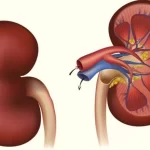Male sexual problem
Male sexual problem- Whether it is because of excessive expectation, or due to some personal concern, sex performance becomes a cause of anxiety and impotence for men of all ages. Tension in the mind about sex can become a hindrance to performance. It can also cause impotence (ED). Some simple methods can help men deal with performance anxiety.
Performance anxiety, and Impotence
Performance anxiety and impotence can be linked in many ways. Stress and anxiety about performing sex, or trying to please a partner can cause sexual dysfunction in both men, and women. In men, these feelings of low self-esteem, and low self-esteem can turn into physical symptoms like impotence. Research suggests that there is a clear correlation between a man’s state of mind, and his ability to perform sex.
Why is there performance anxiety?
Performance anxiety usually stems from negative thoughts about performing well during sexual activity. This can include feelings such as a lack of ability to have sex, or the ability to please a partner. These feelings can be influenced by body image, penis size. Dealing with stress at work, in the family, or with money Can also affect a man’s mental state, and increase performance anxiety.
Symptom of Male sexual problem
Performance anxiety affects everyone differently, as everyone copes with stress, and anxiety in different ways. In the body, it can cause a variety of symptoms, such as premature ejaculation, lack of sexual pleasure, or lack of interest in sex.
How to face Male sexual problems?
Many tips can help people deal with performance anxiety, and impotence, and help them have a positive sexual experience. Also, read- How to have the First-time sex
Don’t get caught in the cycle of stress, and anxiety
Many men can fall into a cycle of performance anxiety. It is completely normal to not perform as expected, and the symptoms of impotence are usually not a cause for concern. However, men who worry about performance may get caught in this cycle of worry, or consider it their impotence. This makes them worry about sex activities in the future, and this worry can lead to impotence. Instead, men must understand what they perceive as failure in sex. is completely normal. Instead of focusing on the negatives, identify what stress or anxiety affected the impotence symptoms. The person should focus on the causes rather than the symptoms. By doing this, the misconception of the person will be removed that the performance is not the same every time, especially when the person is going through stress.
Some exercises for Male sexual problem
A moderate routine of 20 to 30 minutes several times a week can also reduce performance anxiety or stress levels. In addition to general exercise, certain exercises may also help with symptoms. Pelvic exercises, such as Kegel exercises It can help strengthen the muscles responsible for pumping or flowing blood to the penis during impotence.
Apart from this, there are other techniques as well. There are many other techniques used to treat performance anxiety and impotence. These include the following things:
- Meditation, such as imagery therapy
- Counseling of couples ie sex partners
- sex therapy
- sex education
This can help a man open up about his performance anxiety with his sexual partner. This can reduce tension, and the partner can help them find solutions to relieve their anxiety.
When should I see a doctor?
While taking individual steps to help many men with performance anxiety, and impotence, there are some occasions when a doctor should be involved. Those who continue to suffer performance anxiety even after taking steps to reduce symptoms, need to see a doctor about their stress, and anxiety. The doctor can help identify physical causes and ask questions about the man’s mental health, and stress levels. Doctors may have better suggestions for looking at performance anxiety, and impotence. By visiting the doctor, men can find a better medical treatment that helps relieve their symptoms and encourage positive sexual experiences.






